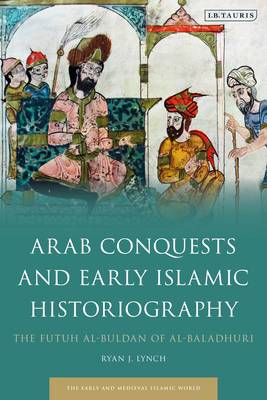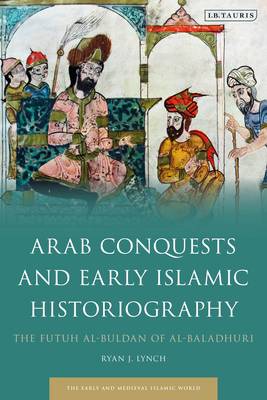
Bedankt voor het vertrouwen het afgelopen jaar! Om jou te bedanken bieden we GRATIS verzending (in België) aan op alles gedurende de hele maand januari.
- Afhalen na 1 uur in een winkel met voorraad
- In januari gratis thuislevering in België
- Ruim aanbod met 7 miljoen producten
Bedankt voor het vertrouwen het afgelopen jaar! Om jou te bedanken bieden we GRATIS verzending (in België) aan op alles gedurende de hele maand januari.
- Afhalen na 1 uur in een winkel met voorraad
- In januari gratis thuislevering in België
- Ruim aanbod met 7 miljoen producten
Zoeken
€ 72,95
+ 145 punten
Uitvoering
Omschrijving
Of the available sources for Islamic history between the seventh and eighth centuries CE, few are of greater importance than al-Baladhuri's Kitab Futu? al-buldan (The Book of the Conquest of Lands). Written in Arabic by a ninth-century Muslim scholar working at the court of the 'Abbasid caliphs, the Futu?'s content covers many important matters at the beginning of Islamic history. It informs its audience of the major events of the early Islamic conquests, the settlement of Muslims in the conquered territories and their experiences therein, and the origins and development of the early Islamic state. Questions over the text's construction, purpose, and reception, however, have largely been ignored in current scholarship. This is despite both the text's important historical material and its crucial early date of creation. It has become commonplace for researchers to turn to the Futu? for information on a specific location or topic, but to ignore the grander - and, in many ways, more straightforward - questions over the text's creation and limitations. This book looks to correct these gaps in knowledge by investigating the context, form, construction, content, and early reception history of al-Baladhuri's text.
Specificaties
Betrokkenen
- Auteur(s):
- Uitgeverij:
Inhoud
- Aantal bladzijden:
- 272
- Taal:
- Engels
- Reeks:
Eigenschappen
- Productcode (EAN):
- 9780755644681
- Verschijningsdatum:
- 26/08/2021
- Uitvoering:
- Paperback
- Formaat:
- Trade paperback (VS)
- Afmetingen:
- 156 mm x 234 mm
- Gewicht:
- 381 g

Alleen bij Standaard Boekhandel
+ 145 punten op je klantenkaart van Standaard Boekhandel
Beoordelingen
We publiceren alleen reviews die voldoen aan de voorwaarden voor reviews. Bekijk onze voorwaarden voor reviews.









